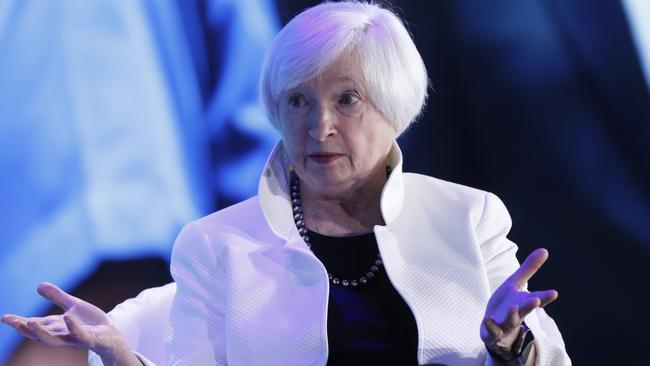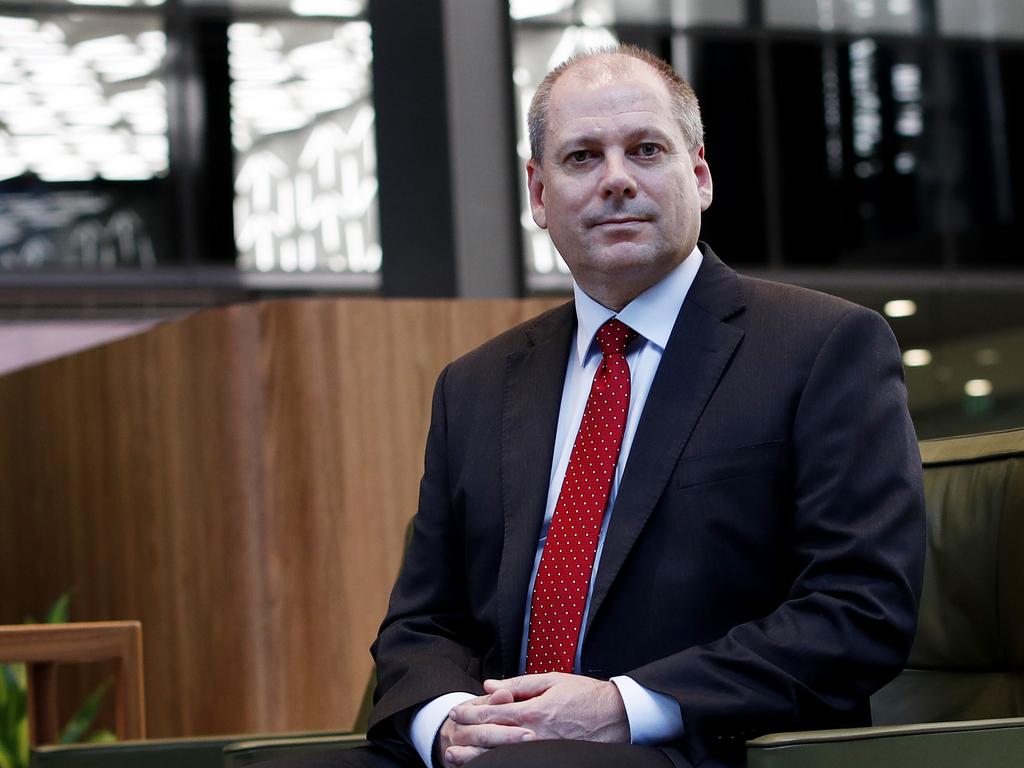Janet Yellen warns of coming wave of COVID-19 bankruptcies
A coming global wave of COVID-related bankruptcies could create their own corporate debt crises, former Fed chair Janet Yellen says.

Former Federal Reserve chair Janet Yellen has warned the economic crisis triggered by COVID-19 is not set for a “V-shaped” recovery but a Nike-shaped “swoosh”, with the potential for related bankruptcies to create their own corporate debt crises.
Speaking on Monday night in Magellan’s annual investor update, Dr Yellen, who is an adviser to the funds manager, said the crisis could have huge and long-term impacts on the global economy and investment landscape as government support ends.
“I expect high levels of bankruptcies and defaults. The underwriting standards on leverage loans have deteriorated enormously. I think the losses on those loans, if they default, could well be far higher than investors are accustomed to,” she said.
“Companies in the US started this crisis with a lot of debt and they’re being forced to take on more. So it’s going to be necessary for them to repair their balance sheets. There are likely to be significant corporate failures and that points to weak investment in employment hiring heading into the recovery.”
Dr Yellen warned there would likely be significant scarring to jobs markets despite support from governments.
“I worry about the permanent job losses and how those people are going to get re-employed. I think that’s going to be a long, drawn-out process,” she said.
“I find it hard to imagine that hospitality, travel, tourism, consumer-facing sectors will come back to anything close to where they were for a very long time. So there’s going to be a lot of permanent lay-offs in those sectors. Structural changes that were underway in sectors such as retail will be accelerated.
“I’m worried about many furloughed workers, their attachment to the labour market. I think there will be people who don’t come back and are permanently sidelined.”
But Dr Yellen, speaking alongside Magellan chairman and CIO Hamish Douglass, said that although the current crisis was “induced by a non-economic shock”, lessons learned in the Global Financial Crisis had averted some of the worst potential consequences of this latest downturn.
“The Fed saw stresses developing that looked very similar to 2008-09. There were runs on money-market funds (which also happened in 2008-09),” she said.
“We would have had a financial crisis due to runs on money-market funds. And they were also essentially runs on open-ended mutual funds, ETFs and corporate bond funds that offer daily liquidity but invest in either investment-grade or higher-yield corporate bonds or leverage loans. So we are lucky in that way that the crisis of 2008-09 occurred.”
Meanwhile, Ms Yellen warned any hint of higher interest rates would likely depress the speed of that recovery and impact households and governments.
“When the Fed decides to raise interest rates, that’s going to increase the interest burden on that debt. And it’s going to begin to put some real pressure on the government budget. And the government will have to raise taxes, cut spending, do painful things as interest payments get larger,” she said.
“At the moment, interest payments are very, very low and they’re going to stay low as long as interest rates are low.”
Secular stagnation
“We’re generally very worried about secular stagnation, weak spending in the economy, a lot of saving, weak investment; an environment in which there would be a prolonged reason for interest rates to stay low.”
In its annual fund review on Monday, Mr Douglass revealed that the flagship Magellan Global Equities Fund still had a relatively-high 15 per cent of its $US8.1bn ($11.7bn) invested in cash as of June 30 amid a “cautious economic outlook and the risks confronting equities”.
On Monday night, he said while the worst-case scenario of a depression — characterised by very slow reopening of the economy and a “policy error” hurting employment and output, “appears relatively unlikely”, a widely-expected V-shaped recovery – involving a quick and successful reopening with most furloughed workers returning to their pre-pandemic hours – “still appears relatively unlikely”.
More likely, Mr Douglass, said, is a “U-shaped recovery from a recession or a prolonged and deep recession”. But “it is still challenging to definitively predict if the current downturn will be more or less severe than the recession of 2008-2009.”







